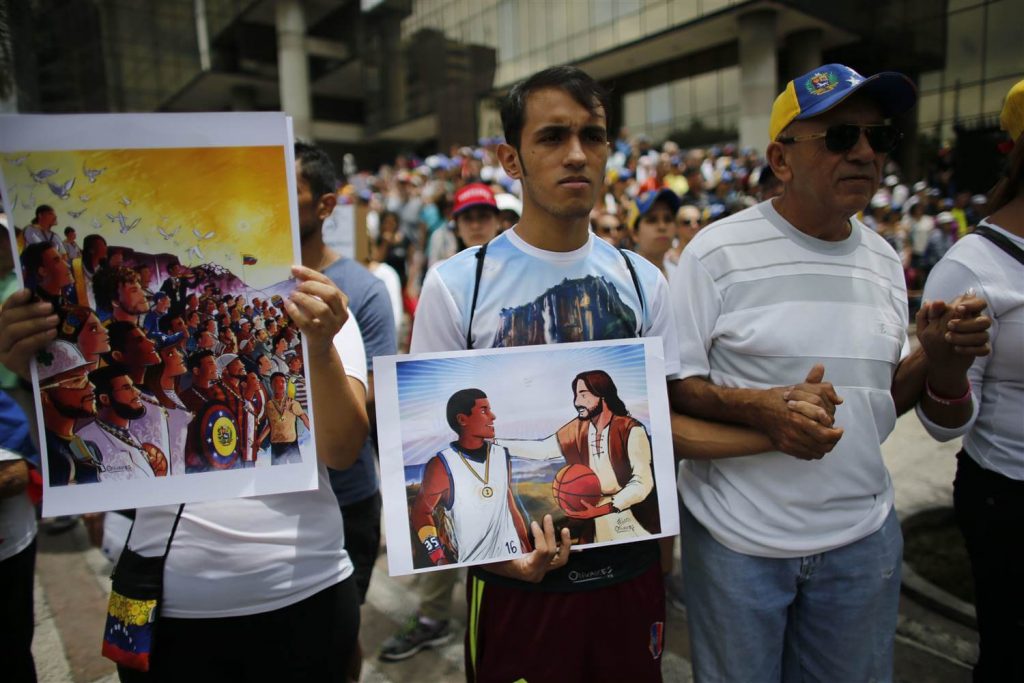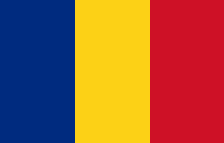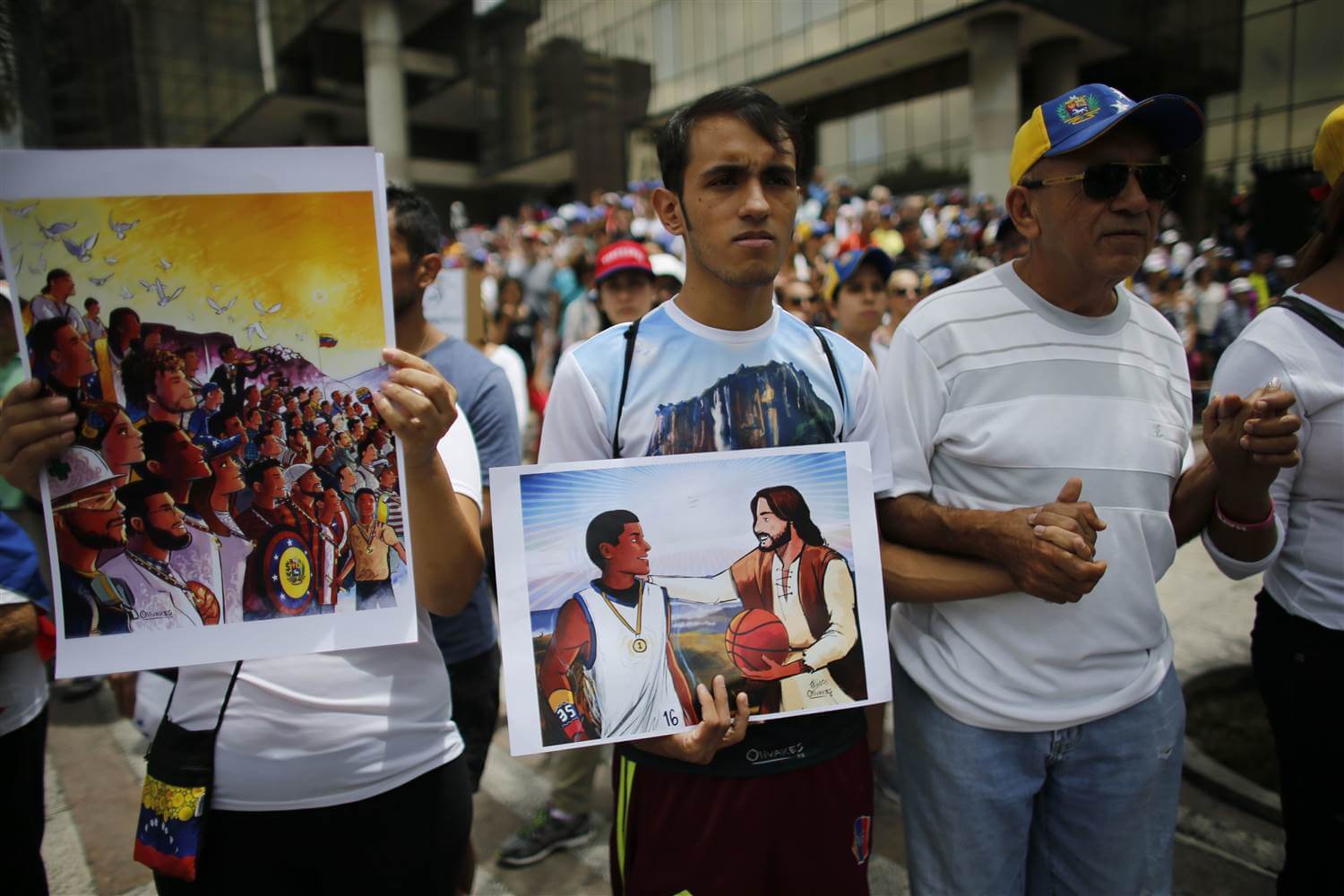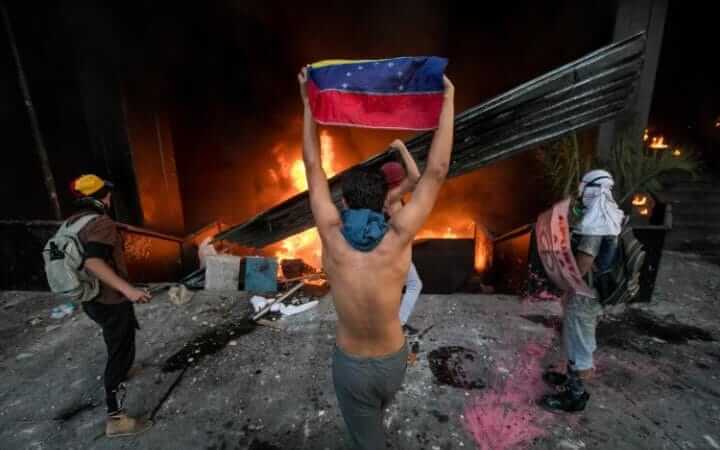
Weekly report: June 23rd, 2017

Cambodia
On Wednesday it was announced that the 13-month investigation into the group of five human rights workers known as the ‘Adhoc 5’ had concluded. The 420-day detention of senior officials Ny Sokha, Nay Vanda, Yi Soskan, Li Mony and senior election official Ny Chakrya has been criticized by several international organizations, including but not limited to the United Human Rights Office, Human Rights Watch and Amnesty International. Earlier in the year, the five were in the running for the Martin Ennals award.
On the same day, Cambodian Prime Minister Hun Sen reaffirmed his promise to maintain power at any cost. Sen underscored that “As long as your tongue and your writing insult, I say that Cambodia is still at war,” and that “To protect the peace for millions of people if necessary, 100 or 200 people must be eliminated.”
Meanwhile, several non-violent protests took place over the course of the week. In Kratie, 200 villagers took to the street to protest rubber planation company Doty Saigon-Binh’s attempt to limit their mobility. Ultimately, it was negotiated that villagers could travel freely 24 hours, but the time limit for the transportation of goods would remain limited. Likewise, over 500 garments workers for the company International Fashion Royal staged a walkout in response to the dismissal of Bo Thet, their union rep. According to reports, the company had prevented workers from paying their union over a seven month period. Later on Thursday, the Kampuchea Krom community was forbidden from protesting at the Nation Assembly in response to the continued human rights abuses of the Krum under present-day Vietnamese people.

Mexico
On Monday, a group of nine activists, journalists and human rights lawyers filed a criminal complaint alleging that the government intentionally infected their phones with software to spy on their activities. The software gives the attacker access to the phone’s files, camera, and microphone. Those potentially targeted by the spying, 88 documented cases altogether, include journalists and activists who have exposed government corruption.
The country is witnessing an important precedent, as Maria de Jesus Patricio Martinez seeks to become the first indigenous woman to run for President in Mexico. Patricio, an indigenous Nahua, is a traditional healer and has been nominated by Mexico’s National Indigenous Congress and the Zapatista National Liberation Army to represent them in next year’s election.
Mexico also hosted the Organization for American States’ (OAS) General Assembly meeting this week, which saw clashes and disagreement over how to handle the political crisis in Venezuela. Venezuela’s foreign minister, Delcy Rodriguez, criticized diplomats for promoting oversight of President Nicolas Maduro’s government and facilitating the interests of imperialist powers. Rodriguez walked out of the summit on Monday.

United States
On June 22 Republican Senators revealed the health care bill, written behind closed doors, in a continued effort to repeal the Affordable Care Act (Obamacare). The bill, which cuts taxes and Medicaid as well as eliminating the insurance mandate, was drafted without any Senate hearings or Democratic amendments. Majority Leader Mitch McConnell is moving for a vote next week, despite uncertainty over whether there will be enough votes for the bill to pass.
The bill, and the secret proceedings around its drafting, have drawn strong opposition from Democrats and civil society. Senate Democrats used parliamentary procedures to tie up the Senate floor on Monday, hoping to draw attention to the secretive procedures of the bill’s drafting. After the bill was revealed, a group of protesters with disabilities held a demonstration at the office of Senator McConnell before being forcibly removed by police.
This week President Trump held a rally with supporters in Iowa, touting victory after Republicans won in a Georgia special Congressional election. Trump has made several recent statements denouncing Robert Mueller’s role as special counsel in the Justice Department’s investigation into Russian interference in the 2016 US Presidential election. He claimed the relationship between Mueller and former FBI director James Comey is “very bothersome.” Mueller served as the director of the FBI from 2001 to 2013 before Comey assumed his duties.

Romania
Romania’s parliament gave prime minister Sorin Grindeanu a no-confidence vote on Wednesday, making him and his government step down after only six months in office. The Social Democrat party, which has a majority in parliament, was initially the party to propose the Grindeanu government. However, it withdrew its support for the government last week. Some Social Democrats say they have been unhappy with Grindeanu’s failure to uphold his ambitious governing program, while Grindeanu and opposition members accuse Dragnea, the Social Democrat leader, of changing the government in an attempt to hold power into his hands. Discussions around appointing a new prime minister are to be held next week.
Another important development in Romania is the recent launch of the new “Respect” campaign, meant to promote democracy and human rights. It is now fighting the “Coalition for Family”, an organization that wants to change the country’s constitution in order for the document to specifically mention that families are based on the union between a man and a woman, thus excluding any possibility for recognizing LGBTQ families. The “Coalition for Family” gathered three million signatures for a referendum on the constitution, yet it has faced serious backlash from national and international LGBT groups. The “Respect” platform, supported by almost 100 Romanian organizations, asks politicians not to approve this referendum.

Syria
In the northwestern reigion of Idlib, Syrians from the village of Ma’art al-Nu’man have been protesting the actions of Hayat Tahrir a-Sham (HTS), formerly Al-Qaeda’s Syrian branch known as al-Nusra. The Free Syrian Army (FSA) rebels have controlled this small village of just over 80,000 since late 2012, but have seen their authority begun to wane owing to the growing power of the HST as well as to increasing in-fighting amongst the rebels. Posters read such things as “The People Are Stronger Than You” and “You cannot humiliate what Bash Al-Assad couldn’t.”
Meanwhile, American forces recently shot down two planes, the former Syrian, and the latter Iranian. Fearing that the approaching drones might be headed for al-Nufra, the town in which the United States has educated any rebel leaders, the American government claims to have acted in self-defense, but many fret that such “incidents” may lead to a possible war between Iran and the United States as the power vacuum in Syria continues to grow.

Democratic Republic of the Congo
UN investigations continue in the Democratic Republic of Congo. Violence escalated after president Joseph Kabila refused to step down after his term ended. On Thursday, a bomb exploded near a school, where three students were injured while taking their exams.
This week, Zeid Ra’ad al-Hussein, the top United Nations human rights official, spoke about the crisis in the DRC. Al-Hussein linked the government to the Bana Mura militia, which has been accused of mass killings and atrocities. He suspects the government has been arming the militia. The official called for an official investigation, independent from the DRC’s government, yet the Congolese authorities quickly rejected the idea. Furthermore, the Catholic Church in Congo recently confirmed over 3000 killings and the destruction of 20 villages, 10 of them by the Congolese army.

Venezuela
Unrest continues in Venezuela, as president Maduro recently promoted several military men to be part of his cabinet. Among them are general Antonio Benavides, previously sanctioned by the US for human rights abuses, and General Carlos Osorio, who has been accused of trafficking hard-to-find food. The generals will replace some previous members of the cabinet, who will be running for a special assembly to rewrite the country’s constitution. The election for the special constitutional assembly, however, has been heavily criticized by the opposition, who says it favours Maduro and his party. Others oppose the rewriting of the constitution in principle.
As a response to the unrest, the OAS (Organization of American States) has been considering adopting a declaration to condemn Venezuela for its abuses. So far, however, the declaration has not passed, despite being heavily backed by the US and Mexico.
Focusing on the people of Venezuela protesting on the streets, several news sources have featured the works of artist Oscar Olivares, who started making digital paintings depicting the situation in Venezuela. It is said that Olivares, initially inspired by the death of a childhood friend in the protests, has become an “icon” for the protesters.

Zimbabwe
One of Zimbabwe’s principle opposition parties, the National People’s Party (NPP) experienced a significant setback on Wednesday when it was announced that several of its high profile officials had resigned. Bekezela Maduma Fuzwayo, previously the Matabeleland South interim chairperson said that he desired to “concentrate on my studies,” but many party officials paint a different story, pointing towards increased factionalism and tribalism within the party. As a result, it is believed that the NPP’s bargaining power to form a coalition with other opposition parties will be weakened.
In turn, President Mugabe and his party ZANU-PF are reported to have been using death threats and other such heavy-handed tactics as a means of encouraging Zimbabweans to attend his rallies.
Meanwhile, in an act of non-violent resistance, journalists Wisdom Mudzungairi and Everson Mushava have refused to testify in the case against fellow journalist Godfrey Tsenengamu who criticized First Lady Grace Mugabe earlier this year. The journalists pointed to “journalistic privilege and the constitutionally protected freedom of expression and freedom of the media, which protects the confidentiality of journalists’ sources of information.” According to the Zimbabwe Human Rights Association (ZimRights), the case against Tsenengamu represents a clear case of censure.
On an equally positive front, Heal Zimbabwe (HZT) worked alongside Bare High School to organize a Sports for Peace Tournament last Saturday, 17th June. With over 300 people in attendance, organizers hoped encourage their community to uphold peace in the run up to the election in 2018. 201 participants signed an HZT pledge worded to this effect.

